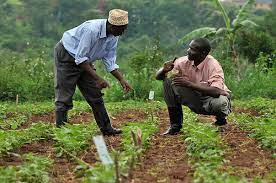An agronomist has raised concerns over the impact of climate change on food security efforts, urging government at all levels to intensify investment in dry-season farming.
Mr Joseph Kaltungo said in Gombe on Thursday that climate change issues must be taken seriously if the country is to make progress in food security.
According to him, the impact of climate change on agriculture can result in a major food crisis in the country as well as discourage farmers from vocation.
He stated that climate change’s impact on agriculture was gradually affecting the incomes of farmers and gradually pushing many of them into poverty.
“In my life as an agriculturist, I have never seen a dry spell in September as witnessed in 2023. This had a severe impact on all crops and caused farmers to have great losses.
“The rain stopped in September for three to four weeks at a level of translocation of photosynthesis.
ALSO READ: From Coast to Community: Restoring Mangroves is Restoring Hope
“This is when all crops were about removing all the foods that have been formed in the plant and depositing them either as grains, rice, ground nuts and cassava amongst others.
“And this process requires water medium, soil moisture for translocation and there was no water so translocation was impacted negatively,” he said.
The former acting programme manager, Gombe State Agricultural Development Programme, Mr Kaltungo, said the challenge affected the yield for 2023 cropping season.
According to him, hectares of farmland where farmers could have 100 bags of rice under normal conditions produced only 10 bags, adding that the same happened to maize and other crops.
ALSO READ: America prepares for total solar eclipse on April 8
He said climate change, amongst other factors, was gradually leading to food insecurity, hence the urgent need for governments to invest massively in agriculture, particularly in dry season farming.
“As an agriculturist, I can tell you that the major solution to addressing the impact of climate change on agriculture is to increase investment in dry season farming.
“In dry season farming, all factors are regulated and you can have better harvest per hectare than in wet seasoning farming.
“In dry season flood, dry spell and other issues associated with weather and climate change have no impact on crops,” he said.
NAN


